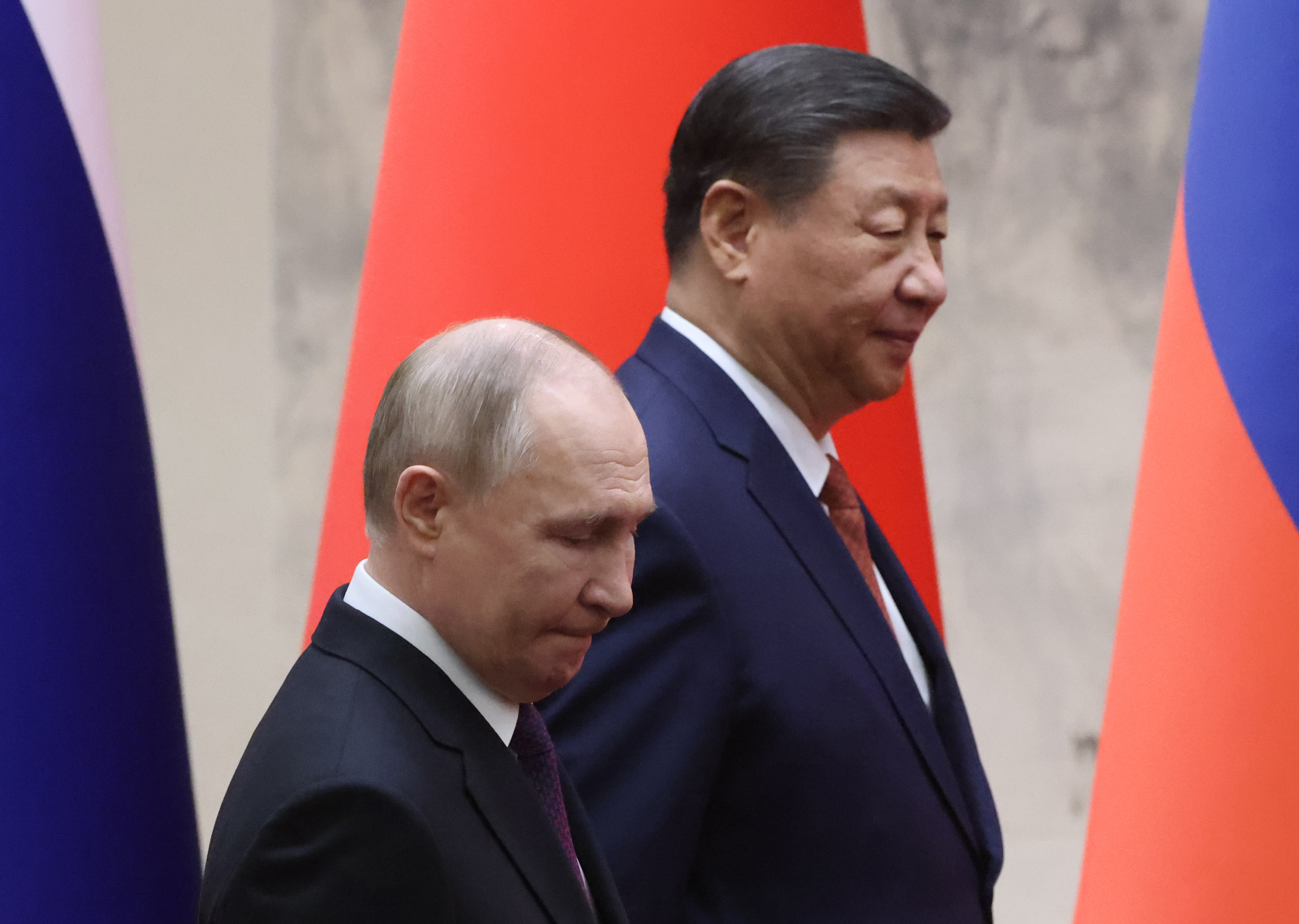Uncommon Knowledge
Newsweek is committed to challenging conventional wisdom and finding connections in the search for common ground.

China will not pay the prices for Russia’s natural gas in the quantities that Vladimir Putin needs to make up for the European market he lost after his invasion of Ukraine, the Russian president’s former deputy energy minister has told Newsweek.
“It’s quite clear that Russia cannot make any profits by exporting gas to China,” Vladimir Milov, who served in the role between May and October 2002 during Putin’s first presidential term and is now an opposition figure abroad, said.
He said the prospect that Gazprom, one of the world’s largest publicly listed natural gas companies, can remain a prime revenue generator for Russia’s economy and Putin’s military machine is “pretty much dead now.”
Putin has touted his close ties with Chinese counterpart Xi Jinping, and the leaders’ meeting last month follows trade between the countries hitting a record $240 billion last year—up by more than a quarter from 2022.
But Beijing is striking a hard bargain on the Power of Siberia 2 pipeline linking the Chinese market to gas fields in western Russia that had supplied Europe, a project Moscow hoped would offset the lucrative market which has mostly disappeared.
Gazprom had restricted gas flows to Europe in mid-2022 in what was seen as a Putin attempt to pressure Kyiv’s allies and retaliate against their sanctions and support of Ukraine. The EU managed to find alternative gas sources without imposing sanctions, although countries including Austria and Hungary still rely on Russian gas.
However, Beijing only wants to buy a fraction of the Siberia 2’s planned annual capacity of 50 billion cubic meters of gas, the Financial Times reported, citing three sources familiar with the matter.
In another sign of its role as the senior partner in the countries’ relationship, China is also demanding prices close to Russia’s heavily subsidized domestic prices. Russia’s lack of another overland route for its gas exports means Gazprom would probably have to accept China’s conditions, the FT reported.
Last month Milov produced a report for the Atlantic Council outlining how Gazprom’s upstream gas-production base is isolated because of a lack of infrastructure connecting western Siberian fields with alternative Asian markets.
His report also cited Gazprom’s failures in building LNG (Liquified Natural Gas) plants to reroute the energy resource.
Milov said that last month’s announcement of 2023 losses of 629 billion rubles ($6.9 billion) losses by Gazprom Group, which also includes oil and power businesses, “is the biggest material proof so far that we have that exports of gas to China is loss-making.”
“Most of the gas is produced is geographically and economically part of Europe, so the only model that actually made sense for Gazprom is to be a major supplier for the European market where all the profits were generated,” said Milov.
“Significant restoration of Russian gas supplies to Europe is highly unlikely,” he said, “once it’s cut off, politically, I don’t see any prospects for it coming back. There is no other alternative model.”
The FT reported that China already pays Russia less for gas than to its other suppliers, with an average price of $4.4 per million British thermal units (Btu), compared with $10 per million Btu for Europe.
The paper also said that a deal on the pipeline was one of three requests Putin made to Xi last month, and that the absence of Gazprom’s chief executive Alexei Miller on the state visit was significant given his essential role in negotiations with Beijing.
China’s demand for imported gas could reach 250 billion cubic meters of natural gas (bcm) by 2030, up from less than 170 bcm last year, according to Columbia University’s Center on Global Energy Policy (CGEP), which said this could mostly be met through existing contracts for pipeline supply and by LNG.
Newsweek has contacted Gazprom and the Kremlin for comment.
Newsweek is committed to challenging conventional wisdom and finding connections in the search for common ground.
Newsweek is committed to challenging conventional wisdom and finding connections in the search for common ground.